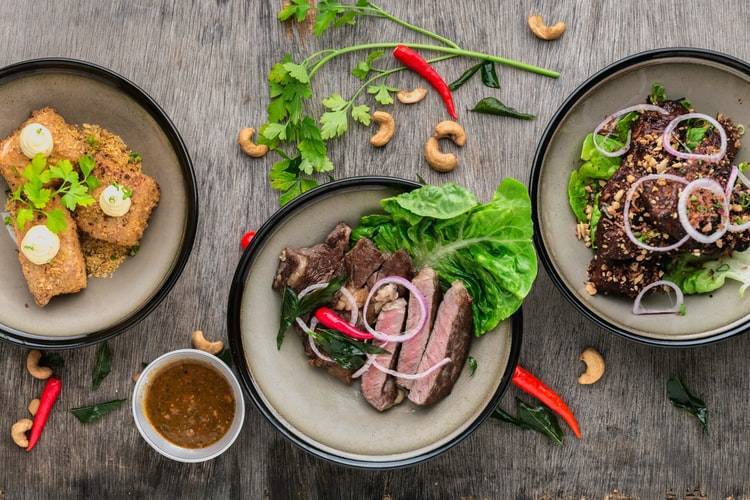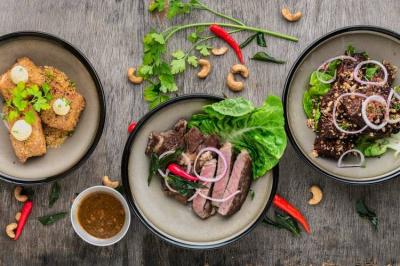Eating a healthy diet is one of the magical keys to achieving a healthy and disease-free body, as long as a person eats mindfully and is aware of the appropriate quantities based on meal timing and ingredients. One of the most significant outcomes of a healthy nutrition system is avoiding the risk of weight gain or obesity, thus reducing the risks of chronic diseases. According to a report published by "Only My Health," avoiding overeating can prevent weight gain, and by following the seven tips from the renowned nutritionist Dr. Swat Bhaval, satisfactory results can be achieved in two weeks:
1. **Small Plates and Bowls**
Buy small serving dishes that hold about a third of the average portions, including bowls, plates, and cups. This is a magical trick that makes the mind believe that the food presented in the dish is sufficient. Surprisingly, a person will not feel hungry after eating from small dishes. For additional benefit, it is advisable to monitor and distribute calories across each meal.
2. **Hand Measurement**
Since the size of a hand grip corresponds to body size, for example, those with larger body sizes will have a relatively larger hand grip. Thus, using the hand grip as a guide for measuring food quantity is an appropriate solution compared to body size, as follows:
- Hand-sized portions of salads and vegetables
- A palm-sized portion of protein-rich foods like beans, meat, and poultry
- A thumb-sized portion of fat-rich foods like nuts, oils, and butter
- Hand-sized portions of high-carb foods like starchy vegetables and whole grains
*Note: The meal quantities mentioned above are ideal for women. Men should double the quantities as their nutritional needs are higher than women’s.*
3. **Half Portions When Eating Out**
Eating at home all the time is not feasible, so it is essential to control portion sizes when dining out. Follow these steps:
- Order half the size of the dish.
- Share the meal with a family member or friend to avoid food wastage.
- Stick to appetizers and side dishes and skip the main course.
- Opt for salads or fried dishes to reduce calories.
- Avoid eating in buffets.
4. **Drink Water Before Meals**
Drinking a cup of water at least 15-20 minutes before the meal reduces hunger and prevents overeating. If a person is overweight, they should drink more water to control their hunger and boost fat burning. It is advisable never to drink water while standing.
5. **Eating from Plates**
Some people consume ready meals or canned food directly from the containers. In most cases, the packaging can be larger, and eating directly from it can lead to consuming more than the body needs. Therefore, it is better to transfer the food to a plate or smaller dishes before eating.
6. **Food Diary**
A diary can be maintained to record what is consumed from the start of the day until the last meal. This will help in tracking improvements in eating habits over time. A food diary also serves to keep people motivated and achieve their goal of healthy eating, with the option to track weight.
7. **Gradual Meal Sizes**
There is a common saying to eat breakfast like a king, lunch like a prince, and dinner like a pauper, meaning to gradually reduce meal sizes over the day with the option to:
- Take one small spoon of apple cider vinegar with water.
- Add chia seeds or flaxseed powder to meals.
- Consume the meal within 20 minutes, which is the same duration it takes for signals of fullness to reach the brain from the digestive tract.




